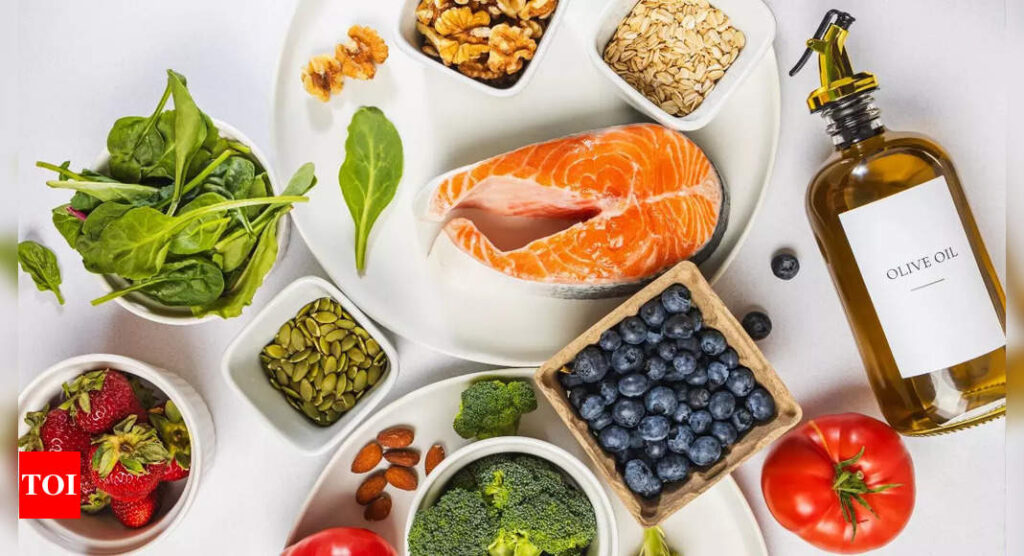Polycystic Ovary Syndrome, commonly abbreviated as PCOS, is a hormonal disorder affecting millions of women, with characteristics such as irregular periods, excessive hair growth, acne, and often, difficulty conceiving. The cause is not entirely clear, but chronic low-grade inflammation plays a significant role in the development and progression of PCOS.
Inflammation and PCOS
Inflammation is the body’s natural response to injury or infection. However, chronic low-grade inflammation can disrupt various bodily functions, including hormone regulation. In PCOS, inflammation can:
– Impair Insulin Sensitivity: Insulin resistance, a hallmark of PCOS, is closely linked to inflammation. When insulin resistance occurs, the body’s cells become less responsive to insulin, leading to elevated blood sugar levels.
– Disrupt Hormonal Balance: Chronic inflammation can interfere with the delicate balance of hormones, leading to increased androgen production, a key feature of PCOS.
– Contribute to Weight Gain: Inflammation can contribute to weight gain, further exacerbating insulin resistance and worsening PCOS symptoms.
The Power of Anti-Inflammatory Foods
Incorporating anti-inflammatory foods into your diet can help reduce inflammation within the body, potentially improving PCOS symptoms.
– Focus on Whole Foods: Prioritize whole, unprocessed foods such as fruits, vegetables, lean proteins, and whole grains.
– Embrace Colourful Produce: Load up on brightly coloured fruits and vegetables, such as berries, leafy greens, and colourful peppers. These are rich in antioxidants, which help combat inflammation.
– Incorporate Healthy Fats: Include healthy fats in your diet, such as olive oil, avocados, nuts, and seeds.
– Lean Protein: Choose lean protein sources like fish, poultry, beans, and lentils.
– Spice Things Up: Include anti-inflammatory spices like turmeric, ginger, and cinnamon.
Examples of Anti-Inflammatory Foods:
– Fatty Fish: Salmon, tuna, mackerel, and sardines are brimming with omega-3 fatty acids, particularly EPA (eicosapentaenoic acid) and DHA (docosahexaenoic acid). Omega-3s are renowned for their potent anti-inflammatory properties. They help to reduce the production of inflammatory compounds in the body, such as cytokines. Beyond their anti-inflammatory effects, omega-3s are crucial for heart health, supporting healthy blood pressure and reducing the risk of heart disease.
– Berries: Berries are packed with antioxidants, which help protect cells from damage caused by inflammation. Berries also offer other health benefits, including improved blood sugar control and enhanced brain function.
– Leafy Greens: Spinach, kale, collard greens, and other leafy greens are nutritional powerhouses, rich in vitamins (like vitamin K and folate), minerals (like calcium and magnesium), and antioxidants. Leafy greens also support bone health, improve digestion, and contribute to overall well-being.
– Cruciferous Vegetables: Broccoli, cauliflower, and Brussels sprouts contain anti-inflammatory compounds. These vegetables also contain other antioxidants like vitamin C and vitamin K, which further contribute to their anti-inflammatory effects. Cruciferous vegetables are also excellent sources of fiber, which promotes digestive health and supports a healthy gut microbiome.
– Garlic and Onions: These flavourful meal additions contain compounds with anti-inflammatory properties. These compounds can help boost the immune system and protect against infections.
Incorporating anti-inflammatory foods into your diet can support your body’s natural anti-inflammatory processes, improve insulin sensitivity, and help manage PCOS symptoms more effectively.
Authored by: Dietitian Vidhi Chawla, founder of Fisico Diet and Aesthetic Clinic.


